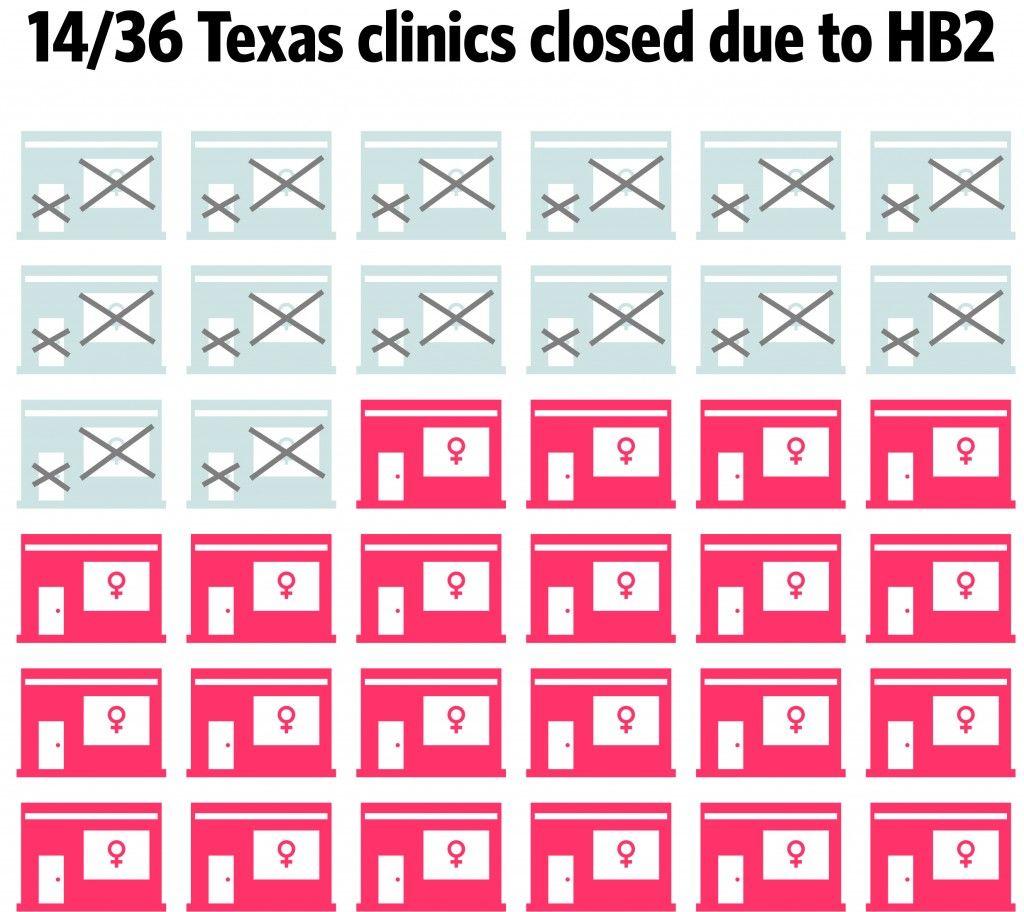A federal judge ruled Friday against provisions in the controversial 2013 Texas abortion law that were to come into effect Monday, giving the dialogue on abortion in Texas new material.
House Bill 2, also known as the Texas Abortion Law, was passed in July 2013 in a special session highlighted by a Wendy Davis filibuster and national media attention. The bill requires doctors who perform abortions to gain admittance privileges from hospitals and held abortion clinics to comply with the same standard as an ambulatory surgical center.
U.S. District Judge Lee Yeakel ruled these provisions were unconstitutional, saying HB2 places an “undue burden on women throughout Texas.”
Pamela Golub, women’s health nurse practitioner for Student Health Services, said on an issue like abortion it is difficult to determine the correct course of action. Golub said the law will affect some women more than others, but that the majority will be able to go to alternative resources for care.
If the law had gone into full effect Monday, it was expected all but seven or eight Texas health clinics that perform abortions would be shut down. The clinics will remain open while the state seeks an appeal through the 5th Circuit Court of Appeals to overturn the judge’s ruling.
The controversy surrounding the law is much broader than just the issue of abortion. Paul Parrish, member of the Planned Parenthood Gulf Coast action fund board, said he thought the number of remaining clinics would be inadequate in serving Texas women on all areas of women’s health and would leave large areas of the state without a nearby clinic.
Bedford Clark, English professor and faculty sponsor of Prolife Aggies, said there are alternative clinics that provide women’s health services without performing abortions.
The Planned Parenthood in Bryan shut down in 2013 around the time HB2 was passed. However, the resources still available to Bryan-College Station women include both on- and off-campus options.
Student Health Services includes a women’s clinic located on the second floor of Beutel, which Golub said can provide a variety of services including annual exams, prescribing birth control and pap smears. However, Beutel refers students out into the community for surgical procedures.
Golub said resources available in the surrounding area for women include a Family Planning Clinic, which has locations in areas like Madisonville, Caldwell and Brenham.
“They can receive birth control, pregnancy testing, and now it has gone into family services,” Golub said. “They’ve very wide-access, especially for local women.”
Clark said he approved of the passage of the law because it promotes educating women about abortion and the process involved. One example he gave was the provision that requires ultrasounds.
“The more that people know about abortion, the less they like it,” Clark said. “People who say that they’re pro-choice — I think in many ways they’re being less than honest. Because in order to have a choice you need to have the facts, and what the state of Texas has tried to do is to present women with the facts. For years Planned Parenthood and other abortion providers talked about abortion as ‘just getting rid of some tissue.’ Ultrasounds show that this is a living person. It’s just a lot smaller than we are. And when you think about that, it’s not that easy to end that life.”
Parrish said arguments such as Clark’s derive from a false premise.
“I absolutely believe that anyone who’s seeking any kind of healthcare should be fully informed and be educated as to what is going on,” Parrish said. “I don’t care whether it’s controversial or non-controversial. A patient should know what is going to happen or what is being considered. The false premise is that women, for example, who are going in to consider or to seek an abortion are somehow ignorant or somehow don’t know what they are doing. I just find that so offensive.”
Both sides have concerns and arguments about the law. Parrish said his concern is that the law demonstrates politicians’ interest in a health issue that should be between women and their doctors.
“That’s the No. 1 objection I have for the intrusive and highly inappropriate — and frankly, for me, very offensive — intrusion of politicians, the vast majority of them being male, deciding what can or cannot happen in a conversation between a woman and a physician or a woman and her religious counselor or a woman and her partner or husband,” Parrish said.
Clark said he is against the idea of an abortion because if society does not care about unborn children, people might not be motivated to care about their neighbors.
“How can we expect our culture as a whole to welcome people who are different from us if on the one hand they’re saying you can destroy your own flesh and blood if it’s inconvenient?” Clark said.
Judge sends abortion law into flux
September 1, 2014
0
Donate to The Battalion
$2065
$5000
Contributed
Our Goal
Your donation will support the student journalists of Texas A&M University - College Station. Your contribution will allow us to purchase equipment and cover our annual website hosting costs, in addition to paying freelance staffers for their work, travel costs for coverage and more!
More to Discover










